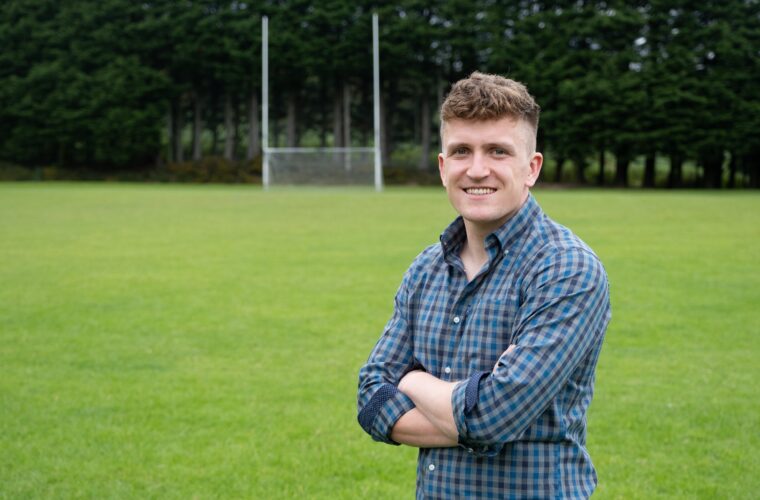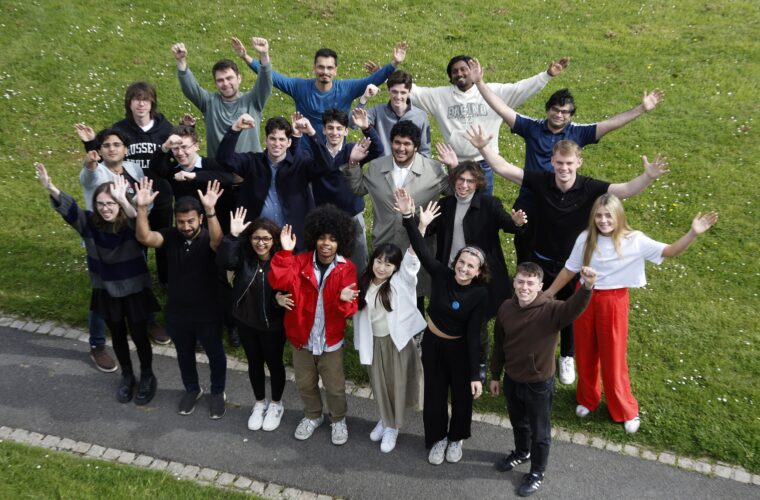One of Ireland’s brightest sports tech start-ups have just announced funding plans and further expansion into the US market.
Output Sports which is headquartered at NovaUCD is a wearable tech company capturing strength and condition and performance data for coaches, individuals and physio practitioners through a single matchbox sized wearable sensor.
“It’s really just about providing data that’s of the elite level, but in a much more simple and effective fashion than usual,” says Output Sports CEO and Co-founder Dr Martin O’Reilly.
Output plans to raise a multi-million euro funding round in the next 6-months, is looking to significantly expand its client base in the professional soccer market in the UK, Europe and the USA.
Co-founded by Dr Martin O’Reilly (CEO), Dr Darragh Whelan (CSO) and Julian Eberle (CTO) the team have been on quite the journey to reach the heights of major UK football clubs, Irish Galic sports clubs and various major league sports teams in the US integrating their performance coaching system into their daily use.
O’Reilly takes us through his journey from frustrated amateur martial arts participant to CEO of the very product he was searching for to help improve his performance.
“At the time, I was doing Muay Thai, and I just really wanted to know more about my power and flexibility,” he explains.
“I started working in this area back in 2012, back then it was a hobby focused on my own training – I was far from an elite athlete – it was for things that I wanted to know about my training at that point.”
O’Reilly was interning at a wearable sports tech company, but its solutions were not providing the information he was searching for which prompted him to study a PhD with the University College Dublin.
“My PhD title was ‘Inertial Measurement Unit Systems for Classifying Compound Lower Limb Exercises: Development and Evaluation’ and the key aim was to maximise the value and accuracy of the information which can be derived from a single wearable sensor in analysing gym-based exercises,” explains O’Reilly.
“That’s where it kind of started and then as we progressed, we saw a great space for elites sports, universities and so on but the longer-term vision is to expand the offering and the product line to also serve the everyday athlete who’s interested in their performance,” he says.
From research project to commercialisation can be a huge step for academics revealing their ‘baby’ to the general public and asking investors to pick through their concept with a fine-tooth comb. This is a stage the team relished, and O’Reilly was fuelled by the prospect.
Finishing the PhD in 2017 they ventured out into the business landscape and asked those in the market if it was a fit for their profession.
“We interviewed about 80 sports practitioners around the world to see was there a gap for what we’re building in terms of a commercial opportunity and their answers really showcased there was a gap for what we’re doing – something that was simple and made sports science much more integrated and portable,” he says. “That’s when we said okay, let’s take this out of the research environment and really focus on commercialisation and the end user effectively.”
“What we’ve done is created a single sensor system, about the size of a matchbox, that can test and monitor all components of fitness be that strength, power, flexibility, speed, agility, all the things that kind of make up an athlete’s performance,” he explains. “Traditionally, that would require laboratory work or kit that’s cumbersome and expensive, but what we’ve done is created a set of algorithms that make the same sort of measurements possible with that little unit that you wear as you as you exercise.”
The system allows users to profile an athlete, to monitor their fatigue and recovery in order to decide the best course of training towards their goal.
“The mission is to make sport science simple and scalable and valuable to any athlete. The technology is all about accuracy, validity, but also simplicity and diversity of measurement,” highlights O’Reilly.
Moving from research to commercialisation means the beginning of forming business roles for the co-founders but just how do you divvy up the roles when it’d time to decide who’s at the helm?
“Some of us had clear skillsets, for instance, Jules was by far the biggest techy and the person that’s going to drive the product development and build a team around him there so that was an easy choice,” O’Reilly says.
“Then myself and Darragh spoke about what would work and effectively, the main thing was that we’re all really open about what the main goals were, where we wanted to go, and what roles we play in getting there and our roles kind of fell out of that – even with that there’s a lot of crossover on a day to day basis as well,” he says.
Output Sport has to date raised €1.3 million in a seed funding round which was led by the Atlantic Bridge University Fund. The other investors in this round were Elkstone Partners, Enterprise Ireland, and angel investors, John Hearne, co-founder and former CEO of Curám Software along with Leinster Rugby players, Adam Byrne and Dan Leavy.
The Output team have just announced a new fundraising round and are looking for upwards of €3 million to support the next phase of their expansion which includes scaling into the markets that are already seeing success with pro sports companies in the UK and the US and university, schools and sports clinics.
“What we’d like to do in the kind of post Covid return to sport is really seize the opportunity in those regions. We’ll open up the US offices in Boston and build a sports science sales and marketing team over there,” says O’Reilly.
“Technologically, we’re all about making the tech more and more valuable for the end user so unlocking the value of the back-end data, perhaps talent identification algorithms, and then automated personal exercise progressions for athletes. Rather than just the traditional approach, they can actually have something much more personalised to them and their own training goals,” he explains.
Output Sports have some very impressive sports teams on their client list including the English soccer team, English Premier League clubs, Burnley FC, Norwich City FC, and Watford FC and in the US FC Cincinnati and Colorado Rapids.
The strategic move to open an office in Boston will further integrate them into the American sports scene and the location should place them amongst some of their biggest competitors in the sports tech market.
“We actually had four MBA students, two years ago, compete a project for us and analyse the US market and what would work for Output,” says O’Reilly, so there’s kind of a multitude of reasons.”
“Some of them are just pragmatic – five hours back home to Dublin, five hours on to the West Coast so it’s quite well situated for the company. There’s also a good American sports tech scene in Boston and there’s also a good investors and start-ups scene in the area as well,” he continues.
“Boston area has a really high density of sport at the pro, college and schools’ level so it means that obviously is a huge country, but you actually have a lot of situated in that north-eastern region, so it makes it another logical choice for us,” he adds.



